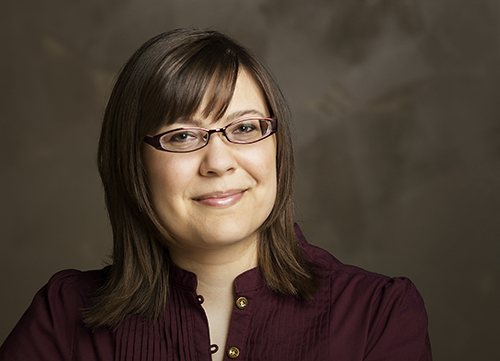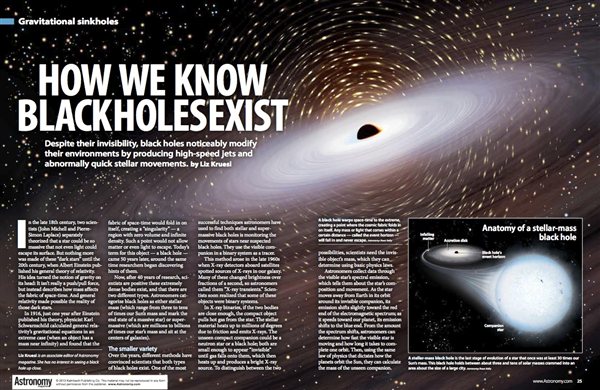 Astronomy magazine is pleased to announce that Associate Editor Liz Kruesi has won one of the top awards in astronomical science journalism from the American Astronomical Society.
Astronomy magazine is pleased to announce that Associate Editor Liz Kruesi has won one of the top awards in astronomical science journalism from the American Astronomical Society.
The society’s High Energy Astrophysics Division honored Kruesi with the 2013 David N. Schramm Award for
High Energy Astrophysics Science Journalism for her April 2012 article, “How we know black holes exist.”
The Schramm Award recognizes distinguished writing on high-energy astrophysics and is judged by a committee of scientists and journalists. The award includes a cash prize and a paid trip to that division’s upcoming meeting in Monterey, California.
“The Astronomy magazine team is very proud of this great accomplishment by Liz,” Editor Dave Eicher said. “Her enthusiastic, precise writing style is valued by the magazine’s readers, who enjoy her take on cosmology and many other areas of the science. Liz richly deserves this esteemed honor, which remembers one of the great minds in astrophysics, David Schramm.”
 We’re making this fine article available to all of our website visitors; just click on the link above or the image at right to download a PDF of the piece. Here’s Liz’s nutshell summary: “Although the technology doesn’t yet exist that can show a black hole, scientists have many lines of observational evidence that essentially prove these objects exist. This article summarizes that evidence.”
We’re making this fine article available to all of our website visitors; just click on the link above or the image at right to download a PDF of the piece. Here’s Liz’s nutshell summary: “Although the technology doesn’t yet exist that can show a black hole, scientists have many lines of observational evidence that essentially prove these objects exist. This article summarizes that evidence.”
Liz is a Chicago native who has worked at Astronomy for six years. She earned a bachelor’s degree in physics from Lawrence University in Appleton, Wisconsin, and spent a year studying graduate astrophysics at Iowa State University. She had some unusually broadening experiences during her college years, serving as a research assistant at the University of Chicago, once in high-energy astrophysics (recalibrating a positron detector) and once in cosmology, and working on the cosmic-ray detector VERITAS (Very Energetic Radiation Imaging Telescope Array System) at the Fred Lawrence Whipple Observatory in Arizona.
In my eight months at Astronomy, I’ve been impressed by how Liz and her colleagues burrow into often highly technical subjects, digging and digging and then shaping the information into an article understandable to general readers. So I asked Liz to say a little about the task of developing her award-winning article. “The topic of how we know black holes exist is challenging and complex,” she said, “and it takes tremendous effort to understand the subject well enough to write a clear, concise article. The key is not to get ahead of oneself, and make sure the story follows a clear progression.”